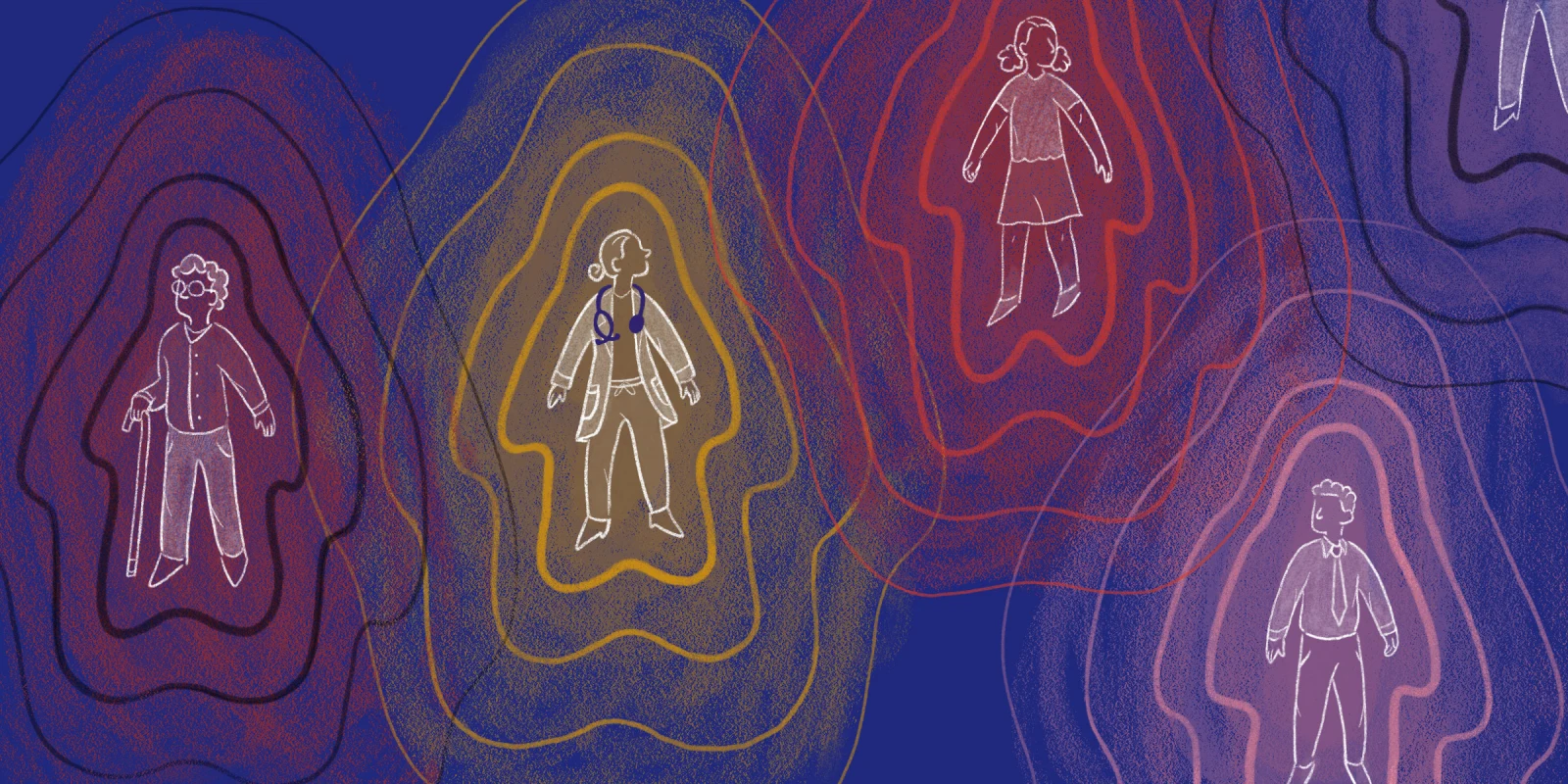In my first years of medical school, I worked at Harvard’s student-run free clinic Crimson Care Collaborative (CCC), where I refined my physical exam and interviewing skills by seeing patients with chronic diseases or those in need of urgent care. Today, several years later, I serve as Executive Director of CCC, overseeing seven Harvard Medical School-affiliated sites — ranging from Massachusetts General Hospital to Boston Healthcare for the Homeless — and the education of hundreds of medical students. I spend my time applying for grant funding for daily operations, connecting with site faculty and student leadership, and spearheading partnerships with other organizations (such as the Harvard Square Homeless Shelter). Through my volunteer engagement with the community, I have grown to be a better clinician, educator, and leader — and I’m not alone in benefiting from an involvement in service.
Indeed, community service is a boon for medical students, as it helps us work in local settings, identify health needs, and serve the same population we may see in the clinic. Service comes in varied forms, and at my institution there are opportunities ranging from mentoring underserved high school students through surgical workshops to playing music to hospitalized patients via videoconference. Volunteering is shown to have positive outcomes for students: improved communication, greater empathy, and enhanced interpersonal and leadership skills. Furthermore, volunteering can aid in academic achievement: A 2022 study found a linear correlation between the former and the latter.
And yet, despite the numerous benefits, many medical schools do not incorporate community service into mission or vision statements, nor do they require medical students to volunteer. Indeed, a recent study from the AAMC found that only one-third of graduating medical students report field experiences in service. There are a variety of reasons for this lack of involvement: lack of incentivization, for one; the baseline workload of medical school, for another. But with support from schools, volunteering can be something available and accessible to all medical students. Below, I offer two key ways to make volunteering a more viable, compelling opportunity.
1) Monitor and bolster students’ activities.
While many medical schools have student-run free clinics or other service opportunities, these experiences can vary greatly without being monitored by the institution. This lack of standardization coupled with the intensity of the time commitment can put students off of volunteering. A simple way to combat this is to have structures in place for monitoring student engagement, whether it be program staff or institutional mentors; these structures ultimately enhance learning and productivity.
In my experience as a volunteer over the years, I was fortunate enough to take part in a program that practiced monitoring: Harvard Medical School’s Community-Engaged Student Practice Placement program (CESPPP), which, as the name suggests, places students in local community initiatives ranging from the Massachusetts Department of Public Health to the Boston Public Health Commission. Central to community service and the CESPPP was the idea of collaborating with community members to identify challenges and find solutions to community health needs.
Through CESPPP, I enrolled in an internship with The Massachusetts Association of Community Health Workers, where I restructured their website and outward-facing resources based on a think tank evaluation of community health workers’ needs. During my time as an intern, I was able to gain a better understanding of allies and advocates of patients outside the health care system; understand how to advance an organization’s mission; and learn how to identify structural solutions to health care disparities. Across the internship, CESPPP provided support and frameworks for me to grow both personally and professionally — most notably in the form of lectures on how to organize focus groups and facilitate discussions. This meant that while I was interning, I was also learning skills that would set me up for a lifetime of community engagement.
2) Offer a stipend or graduation credits.
As part of CESPPP, I gained numerous tangible and intangible benefits. First, I was able to explore my health care policy and leadership interests in ways that were directly applicable to the community. Next, I was able to receive a stipend, while other participants in the program also obtained graduation credits. Finally, I gained translatable skills in communication and leadership that will be useful to me in my career, regardless of what that may look like. These various perks can be an additional incentive and consideration for students who want to explore or participate in community service but need a push.
As a medical student who participates in service, I believe that all medical students can benefit from longitudinal community service and engagement. I have found myself growing both inside and outside of the classroom and wards through my service opportunities, and I feel incredibly fortunate to have been able to learn from health care workers outside of my institution and community members in the city I have come to call home. I believe it is imperative that more medical schools focus on this aspect of a student’s learning, and hope that institutions incentivize and continue to embrace structures and programs that allow their students to grow and thrive.
Have you ever participated in community service? Share your experiences in the comments!
Ellen Zhang is a Harvard Medical Student who is passionate about using writing as a lens to unravel the complexity of medicine, enhance empathy, and provide humanistic care. She enjoys hiking, baking, and exploring local cafes. Ellen is a 2022–2023 Doximity Op-Med Fellow.
Illustration by Diana Connolly





